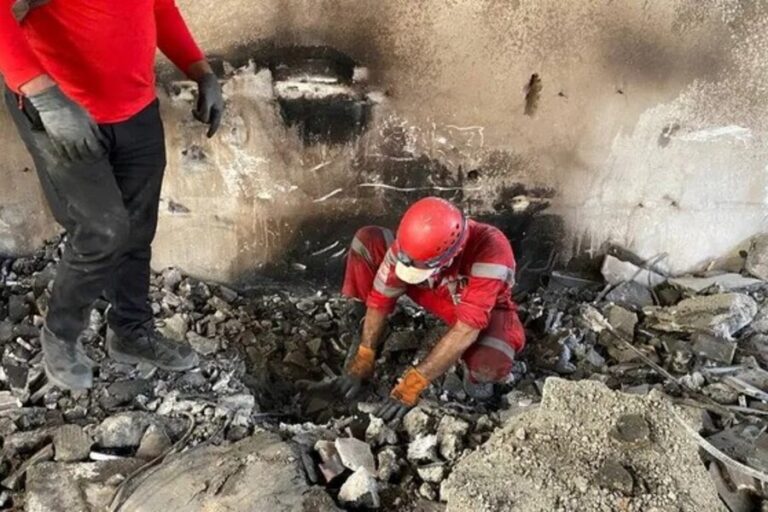President Donald Trump issued a stark warning late Sunday, calling on residents of Tehran to evacuate the Iranian capital “before there is nothing left,” as hostilities between Israel and Iran entered their fifth day with deadly intensity. The urgent message came shortly after Trump departed the Group of Seven summit in Canada to return to Washington and oversee efforts for a U.S.-backed ceasefire.
Trump’s warning followed a week of rapidly escalating military action. Israel launched a surprise offensive on June 13 that killed key Iranian military leaders and nuclear scientists, while also striking uranium enrichment facilities. In retaliation, Iran fired ballistic missiles that breached Israeli defenses, hitting civilian areas and military targets. Officials from both nations confirmed the death toll had risen to 224 Iranians and 24 Israelis.
Posting on Truth Social, Trump declared: “IRAN CAN NOT HAVE A NUCLEAR WEAPON. I said it over and over again! Everyone should immediately evacuate Tehran!” The message marked a sharp escalation in rhetoric as Tehran, home to nearly 10 million people, braced for further airstrikes.
French President Emmanuel Macron confirmed that Trump’s early departure from the G7 was to focus on halting the violence. “There is an offer that has been made, especially to have a ceasefire and to initiate broader discussions,” Macron said. Trump hinted at the same earlier in the day, telling reporters, “They have to make a deal,” and adding that Iran was “not winning this war.”
Back in Washington, a bipartisan group of lawmakers moved swiftly to oppose any potential U.S. military intervention. Rep. Thomas Massie, a Kentucky Republican, introduced a resolution to block involvement without congressional authorization, warning, “This is not our war.” Progressive Democrats, including Reps. Ro Khanna and Alexandria Ocasio-Cortez echoed his stance. Senator Bernie Sanders introduced legislation aimed at preventing Trump from launching what he called “an illegal war with Iran,” while Senator Tim Kaine pledged to bring forward a War Powers Resolution.
Iran, meanwhile, signaled it was open to negotiation—if the U.S. could rein in Israeli aggression. Foreign Minister Abbas Araqchi urged Trump to pressure Israeli Prime Minister Benjamin Netanyahu, suggesting that Iran would then show flexibility on its nuclear position. According to Reuters, Tehran has asked Qatar, Saudi Arabia, and Oman to appeal to Washington for a ceasefire framework.
Despite the escalating rhetoric, U.S. Defense Secretary Pete Hegseth emphasized that the American posture remained defensive. “We are postured defensively in the region to be strong in pursuit of a peace deal,” he told Fox News, reiterating that the U.S. still hopes for a nuclear agreement.
Amid the turmoil, the U.S. Embassy in Jerusalem issued a grim advisory, warning it could not assist Americans trying to leave Israel due to the closure of Ben Gurion Airport and major seaports. The Chinese embassy similarly urged its citizens to evacuate through land borders as soon as possible.
The G7 summit, overshadowed by the crisis, concluded with a joint statement backing Israel and denouncing Iran’s destabilizing role in the region. White House Press Secretary Karoline Leavitt said Trump’s early exit from the summit was necessary due to the rapidly evolving situation. “Much was accomplished, but because of what’s going on in the Middle East, President Trump will be leaving tonight after dinner with Heads of State,” she posted.
As the world watches anxiously, the potential for a U.S.-brokered ceasefire remains uncertain. Trump’s warning to Tehran, congressional resistance to war, and diplomatic overtures from Iran all point to a high-stakes geopolitical moment. Whether diplomacy can prevail amid the escalating violence remains to be seen.
